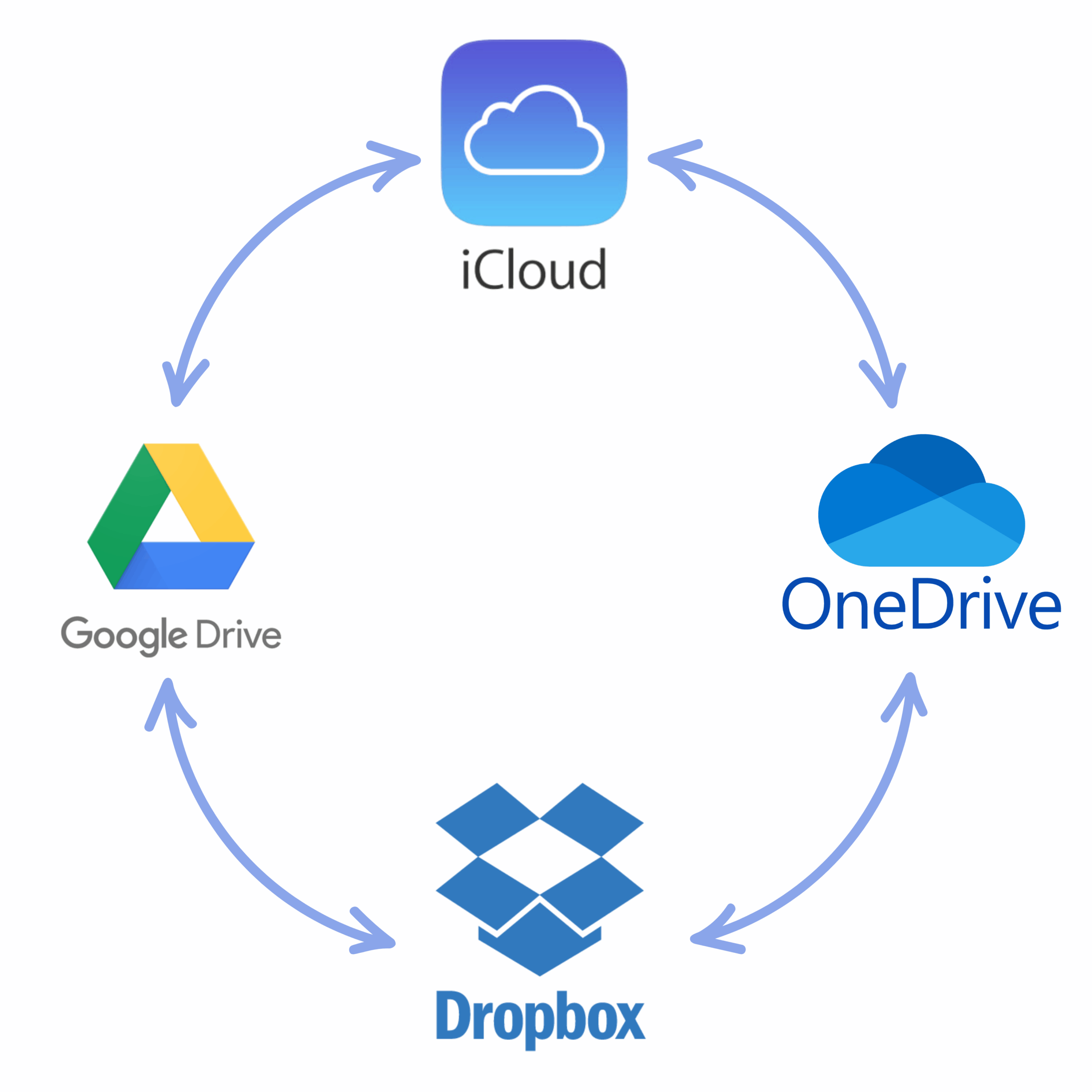Hybrid Cloud vs Multi Cloud: Key Differences Explained for IT Teams
As businesses scale, their cloud strategies grow more complex. IT teams are often faced with the critical question: Hybrid Cloud vs Multi Cloud — which is the right approach? While the terms are often used interchangeably, they represent very different architectures, strategies, and outcomes.
In this guide, we’ll break down the difference between hybrid cloud and multi cloud, explore use cases, and help you decide which fits your organization’s goals — with a special look at how SynCloud.app simplifies management across both.
What Is a Hybrid Cloud?
A hybrid cloud combines on-premises infrastructure (private cloud) with one or more public cloud services (like AWS or Azure). The goal is to allow data and applications to move between environments for greater flexibility and control.
🔁 Example: A company runs sensitive databases on a private server but uses AWS for scalable web hosting.
What Is Multi Cloud?
Multi cloud, on the other hand, refers to using multiple public cloud providers for different services — like Google Cloud for AI models, AWS for storage, and Azure for enterprise apps.
🎯 Example: A company uses Google Drive, OneDrive, and Dropbox simultaneously, or runs workloads on both Azure and AWS to avoid vendor lock-in.
Hybrid Cloud vs Multi Cloud: A Quick Comparison
Feature | Hybrid Cloud | Multi Cloud |
Infrastructure Type | Mix of private + public clouds | Multiple public cloud providers |
Common Use Case | Security, compliance, legacy systems | Redundancy, flexibility, performance |
Vendor Lock-in | Often tied to one provider | Avoided by using multiple vendors |
Complexity | Integration between private/public | Orchestration across providers |
Cost Optimization | Medium | High (with good multi cloud cost management tools) |
Security Model | Custom/private | Varies across providers – needs unified multi cloud security |
Why the Confusion?
Terms like multi cloud vs hybrid cloud or hybrid multi cloud are often thrown around in tech circles, but here’s a simple rule:
✅ If your setup includes a private cloud, it’s hybrid.
✅ If it’s all public clouds from different providers, it’s multi cloud.
✅ If it’s both — that’s hybrid multi cloud.
The Rise of Multi Cloud Strategies
With growing emphasis on cloud to cloud data movement, app redundancy, and vendor flexibility, most organizations are adopting multi cloud strategies. Benefits include:
- Reduced Downtime with failover between platforms
- Increased Security with isolated workloads
- Data Sovereignty and compliance options
- Better multi cloud networking and global reach
Tools like SynCloud.app offer seamless cloud to cloud transfers, unified dashboards, and multi cloud storage management, making it easier for IT teams to handle the growing complexity.
Managing Complexity with SynCloud.app
Managing multi cloud environments or hybrid setups can be challenging without the right tools.
How SynCloud.app Helps:
✅ Multi Cloud Management Platform: Connect and control all your cloud apps in one place
✅ Cloud to Cloud Migration Tools: Move files, data, and workloads effortlessly
✅ Security & Compliance: Built-in multi cloud security solutions and data controls
✅ Unified Dashboard: Monitor usage, transfer history, and backups across clouds
✅ Automation: Schedule cloud-to-cloud backups or file syncing
Whether you’re migrating infrastructure to the cloud or implementing a new multi cloud architecture, SynCloud saves IT teams time, reduces error, and improves visibility.
Which Is Right for You?
Organization Type | Best Strategy |
Regulated Industries | Hybrid Cloud |
Fast-growing Startups | Multi Cloud |
Global Enterprises | Hybrid Multi Cloud |
SaaS Providers | Multi Cloud with backup & failover |
If your business requires migration into cloud, multi cloud deployment, and multi cloud app management, SynCloud.app is purpose-built to support your journey.
Final Thoughts
Understanding the difference between multi cloud and hybrid cloud is essential for designing the right infrastructure. While hybrid cloud provides control and security, multi cloud offers flexibility and freedom.
👉 SynCloud.app empowers IT teams to manage multi cloud environments, optimize costs, secure data, and streamline file movement across platforms like Google Drive, Dropbox, and OneDrive — all from a single, easy-to-use dashboard.
Ready to take control of your cloud ecosystem?
Start managing your hybrid or multi cloud setup with SynCloud.app today — the smart way to unify cloud storage.

